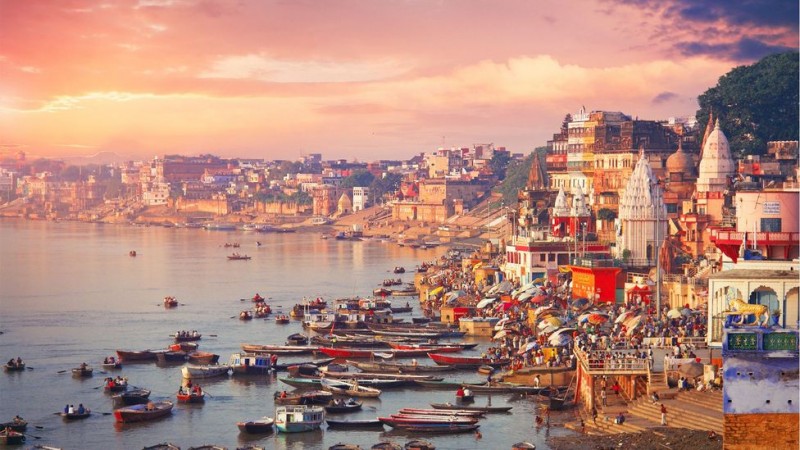
Varanasi, also known as Kashi or Benaras, is one of the oldest continuously inhabited cities in the world and is considered the spiritual heart of India. Nestled on the banks of the sacred Ganges River in the northern state of Uttar Pradesh, Varanasi is a city steeped in rich history, vibrant culture, and profound spirituality. For thousands of years, pilgrims, seekers, and travelers have been drawn to this holy city in search of enlightenment and salvation. Varanasi, the eternal city of spiritual enlightenment, is a mesmerizing destination that transcends time and space. Its timeless traditions, sacred rituals, and profound spirituality continue to draw people from all walks of life, seeking solace, knowledge, and a deeper connection to the divine. As the Ganges River flows gracefully through its heart, Varanasi remains an iconic symbol of India's spiritual heritage and a cherished destination for seekers of truth and enlightenment.
Varanasi holds immense spiritual significance for Hindus. It is believed that Lord Shiva, one of the principal deities in the Hindu pantheon, founded the city. According to Hindu mythology, Varanasi is the place where the celestial river Ganges descended from the heavens to Earth, making it a revered site for ritualistic baths and religious ceremonies. The city is famous for its numerous ghats, or riverfront steps, leading down to the Ganges. The ghats are an integral part of daily life in Varanasi, serving as gathering places for spiritual practices, rituals, and sacred bathing. The Dashashwamedh Ghat, Assi Ghat, and Manikarnika Ghat are some of the most renowned and culturally significant ghats in the city. Every evening, a grand Ganga Aarti (ritual of worship) is performed at the Dashashwamedh Ghat. Devotees gather to witness the mesmerizing spectacle of priests offering prayers, chanting hymns, and waving oil lamps in a synchronized manner, creating an aura of spiritual fervor that captivates all who are present.
Varanasi has long been a destination for spiritual seekers and wandering sadhus (holy men). The city's tranquil ambiance, ancient temples, and spiritual aura provide an ideal environment for introspection, meditation, and the pursuit of spiritual knowledge. Varanasi is dotted with numerous temples, each steeped in mythological tales and religious significance. The Kashi Vishwanath Temple, dedicated to Lord Shiva, is one of the holiest and most revered temples in India. Other notable temples include the Sankat Mochan Hanuman Temple, the Tulsi Manas Mandir, and the Durga Temple. Beyond its spiritual significance, Varanasi is a hub of cultural heritage. The city has been a center of learning, music, and art for centuries. Its vibrant culture is reflected in classical music and dance performances, intricate silk weaving, and the age-old tradition of silk saree making.
The Ganges River plays a central role in the lives of Varanasi's residents and visitors. It is considered sacred, and taking a dip in its holy waters is believed to wash away sins and bestow blessings. Hindu cremation ceremonies, symbolizing the cycle of life and death, are also performed at the Manikarnika and Harishchandra Ghats. In addition to its spiritual significance, Varanasi offers a plethora of tourist attractions. The Banaras Hindu University, founded in 1916, is one of the largest residential universities in Asia and boasts an impressive campus and museums. The Ramnagar Fort, dating back to the 17th century, is another must-visit site, with its intriguing history and architecture.
Also read-Brahma Hatya: Understanding the Grave Sin in Hinduism
Lord Brahma: The Creator and Architect of the Universe
Goddess Saraswati: The Embodiment of Knowledge, Wisdom, and Arts